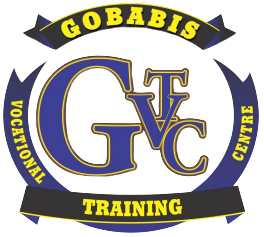As we navigate the ever-changing job market, it's becoming increasingly clear that traditional four-year university degrees are no longer the only path to success. Vocational education, also known as Technical and Vocational Education and Training (TVET), is gaining recognition as a vital alternative that offers trainees a more direct route to in-demand careers and economic stability.
Closing the Skills Gap
The skills gap is a pressing issue that affects businesses, industries, and individuals alike. Vocational education helps bridge this gap by providing trainees with hands-on training and industry-recognized credentials that prepare them for high-paying jobs in high-demand fields.
Benefits of Vocational Education
Vocational education offers numerous benefits for trainees, employers, and the economy as a whole. Some of the advantages include:
- Job readiness: Vocational programs equip trainees with the skills and knowledge they need to enter the workforce immediately after graduation.
- Industry relevance: Vocational education is often tailored to specific industries, ensuring that trainees learn the most up-to-date skills and technologies.
- Lower trainees’ debt: Vocational programs are generally shorter and less expensive than traditional university programs, reducing trainees’ debt and financial burdens.
- Increased earning potential: Graduates of vocational programs can earn higher salaries compared to those without formal education or training.
Real-Life Examples
Vocational education is in action across various industries, from healthcare to technology. Some examples include:
- Culinary arts programs: trainees learn the skills to become chefs, sous chefs, or pastry chefs, preparing them for careers in restaurants, hotels, or food service management.
- HVAC and plumbing programs: trainees gain hands-on experience in heating, ventilation, and air conditioning (HVAC) and plumbing, preparing them for careers in building maintenance and repair.
- Cybersecurity programs: trainees learn the skills to protect computer systems and networks from cyber threats, preparing them for careers in IT security and digital forensics.
Empowering Future Generations
Vocational education is not just about preparing trainees for jobs; it's about empowering them with the skills and confidence to succeed in their chosen careers. By investing in vocational education, we can:
- Boost economic growth: By addressing the skills gap and providing a workforce with in-demand skills, we can stimulate economic growth and job creation.
- Increase social mobility: Vocational education offers a pathway to success for individuals from all backgrounds, promoting social mobility and equality.
- Enhance community development: By investing in vocational education, we can build stronger, more resilient communities with a skilled workforce.
In conclusion, vocational education is a powerful tool for unlocking future opportunities. By embracing this alternative path, we can address the skills gap, boost economic growth, increase social mobility, and enhance community development.

